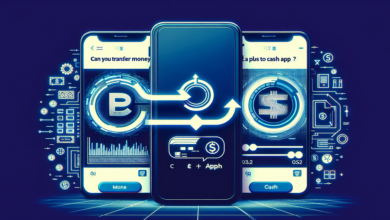Can You Transfer Cash App Money to Your Bank Account
You're probably wondering if you can transfer your Cash App funds to your bank account – and the answer is yes, you can. In fact, it's quite straightforward. You'll need to link your bank account to Cash App first, and then you can initiate a transfer. But before you do, you should know that there are some limitations and potential fees involved. For instance, transfer limits and fees can vary depending on the type of transfer you choose. To guarantee a smooth transfer process, it is crucial to understand these details – which we'll explore next.
Linking Your Bank Account
To begin transferring Cash App money to your bank account, you'll need to link your bank account to the Cash App. You'll do this by opening the Cash App and directing to the 'My Cash' or 'Balance' tab. Next, you'll tap the 'Add Bank' or 'Link Bank' option and select your bank from the list of available options. If your bank isn't listed, you can manually enter your bank's routing and account numbers. After you've entered your bank account information, the Cash App will verify the account. Once verified, your bank account will be linked to the Cash App, and you'll be able to transfer money to it. This process guarantees the secure transfer of your funds.
Understanding Transfer Limits
When transferring Cash App money to your bank account, you'll need to be aware of the transfer limits that apply to your account. These limits vary depending on the type of account you have and the recipient bank's policies. You can check your transfer limits in the Cash App by going to the 'Banking' tab and selecting 'Transfer Limits.' It's important to note that exceeding these limits may result in delayed or canceled transfers. To avoid issues, you should verify your account and confirm that the recipient bank can accept the transfer amount. Additionally, some banks may have their own transfer limits, so it's a good idea to check with them as well to guarantee a smooth transfer process.
Cash App Transfer Fees
Cash App charges fees for certain types of transfers, which you'll need to take into account when moving money from your Cash App account to your bank account. You'll be charged a small fee for instant transfers, which allow you to access your funds immediately. However, standard transfers, which take a few days to process, are typically free. Additionally, you may be charged a fee if you transfer money using a credit card. It's important to review the fees associated with your transfer before initiating it, as they can eat into your funds. You can check the Cash App website or mobile app for the most up-to-date fee information. This way, you can plan your transfers and minimize any potential charges.
Steps to Initiate Transfer
Initiating a transfer from your Cash App account to your bank account involves a straightforward process that can be completed in a few taps on your mobile device. You'll need to open the Cash App, navigate to the 'Balance' tab, and select 'Cash Out.' From there, you can choose the amount you want to transfer and the bank account you want to send it to.
| Transfer Option | Description |
|---|---|
| Standard | 1-3 business days, no fee |
| Instant | Immediate, small fee applies |
| ATM | Immediate, ATM fees may apply |
Once you've confirmed the transfer details, the funds will be on their way to your bank account. Make sure to review the transfer details carefully to verify accuracy and avoid any potential issues.
Transfer Processing Timeframes
The speed at which your transfer is processed depends on the transfer option you choose, with turnaround times ranging from immediate to several business days. If you're looking for a speedy transfer, you can opt for the instant deposit option, which typically transfers your funds immediately to your debit card. However, this option comes with a small fee. On the other hand, if you can afford to wait a bit, the standard deposit option is free and takes one to three business days to process. It is important to factor in processing time when planning your finances to avoid any potential delays or issues. By choosing the right transfer option, you can manage your money more efficiently and securely.
Common Transfer Issues
When transferring funds from your Cash App account to your bank account, you may encounter issues that can delay or prevent the transfer from going through. These issues can stem from incorrect bank account information, such as an incorrect routing number or account number. You might also experience issues with your internet connection or Cash App's server. Another common issue is insufficient funds in your Cash App account, which will prompt the transfer to fail. It's also possible that the recipient bank rejects the transfer, or there's an issue with your Cash App account itself. If you encounter any of these issues, you can try retrying the transfer or seeking help from Cash App support. They'll guide you in resolving the issue safely.
Verifying Your Bank Account
To guarantee seamless transfers from Cash App to your bank account, you'll need to verify your bank account within the app. This step is essential for security and helps prevent unauthorized transactions. To verify your account, you'll need to provide some information, such as your bank account number and routing number. You may also need to confirm a small test deposit sent by Cash App to your bank account. Once you've entered the correct information and confirmed the test deposit, your bank account will be verified, and you can start transferring funds from Cash App. Verifying your bank account also helps make sure that your transfers are processed correctly and efficiently, giving you peace of mind when moving your money.


